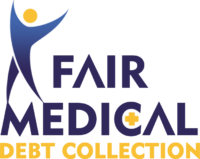
How Does a Medical Debt Collection Agency Work for Your Practice?
Healthcare is undeniably a vital component of our society, ensuring the well-being and health of millions. However, with the provision of medical services comes the financial responsibility borne by patients. Unfortunately, not all medical bills are paid promptly or at all, leading to significant revenue losses for medical practices.
Recent studies indicate that approximately 32% of working-age Americans have unpaid medical bills. With such a staggering percentage, medical practices often find themselves in the challenging position of providing care while also grappling with the financial strain of unpaid bills. This is where medical debt collection agencies come into play.
The Role of Medical Debt Collection Agencies
Medical debt collection agencies specialize in recovering unpaid medical bills. Their primary objective is to retrieve as much of the unpaid debt as possible on behalf of the medical practice. Here’s a breakdown of how they operate:
1. Contractual Agreement:
The first step involves the medical practice entering a contractual agreement with the debt collection agency. This contract outlines the terms of service, fees, and the expected duration of the debt collection process.
2. Debt Assignment:
Once the contract is in place, the medical practice hands over the details of the unpaid bills to the collection agency. This information typically includes patient details, service provided, amount due, and the duration of the unpaid bill.
3. Initial Contact:
The agency then contacts the debtor, informing them about their unpaid bills and the need for payment. This communication is often done through letters, phone calls, or emails.
4. Negotiation:
If the debtor is unable to pay the full amount, the agency might negotiate a payment plan or a reduced amount to facilitate payment.
5. Legal Action:
In cases where the debtor is non-responsive or refuses to pay, the agency might take legal action, but this is usually a last resort. It’s essential to choose an agency that handles such matters ethically and within the confines of the law.

Benefits of Employing a Medical Debt Collection Agency
Focused Expertise:
These agencies have expertise in debt collection, understanding the nuances and legalities involved. They know the best practices to approach debtors and ensure the highest recovery rates.
Improved Cash Flow:
With a significant chunk of unpaid bills being recovered, medical practices can experience improved cash flow, enabling them to focus on providing quality healthcare without financial constraints.
Time and Resource Savings:
Chasing unpaid bills can be time-consuming. By outsourcing this task, medical practices can redirect their resources to more crucial areas of their operation.
Legal Protection:
Debt collection involves many laws, and any misstep can land the practice in legal trouble. Collection agencies are well-versed in these laws, ensuring that the recovery process is compliant.
Higher Recovery Rate:
Statistics have shown that medical practices that employ the services of debt collection agencies have a higher rate of debt recovery compared to those that try to recover the debt on their own.
While unpaid medical bills pose a significant challenge, medical debt collection agencies offer a viable solution. By understanding their operation and leveraging their expertise, medical practices can mitigate financial strains and continue to offer top-tier medical services.

What is Fair Medical Debt Collection and How Can it Help Your Practice?
In the world of medical billing and debt recovery, the term “fair” plays a critical role. It’s not just about getting back what’s owed, but also ensuring that the process is carried out ethically and within the confines of the law. Fair Medical Debt Collection refers to practices that respect the rights of patients while seeking to recover debts. Understanding this concept and incorporating it into your practice’s debt recovery process can benefit both your establishment and your patients.
Defining Fair Medical Debt Collection
At its core, Fair Medical Debt Collection means following practices that are honest, transparent, and respectful. It involves:
- Transparency: Clearly explaining medical bills to patients, breaking down charges, and clarifying any doubts they might have.
- Empathy: Understanding that many patients may be going through difficult financial times or may have been genuinely unaware of a due balance.
- Flexibility: Offering payment plans or adjusting the debt amount in specific cases to make it manageable for the patient.
- Compliance: Adhering to all legal guidelines, such as the Fair Debt Collection Practices Act (FDCPA), which sets standards for how debt can be collected and protects consumers against abusive practices.
Benefits of Fair Medical Debt Collection for Your Practice
- Enhanced Reputation: By treating patients fairly and with respect, your practice can earn a reputation as an understanding and ethical institution. This can result in increased loyalty and patient referrals.
- Better Patient Relationships: Fair practices make patients feel valued and understood, which can foster a stronger doctor-patient relationship. They might be more inclined to settle their dues if they feel the establishment cares about their well-being.
- Higher Recovery Rates: An empathetic approach can often lead to better recovery rates. When patients feel they’re treated fairly, they’re more likely to cooperate and find ways to settle their bills.
- Legal Protection: Adhering to guidelines like the FDCPA ensures that your practice is always on the right side of the law, safeguarding against potential lawsuits and legal disputes.
- Efficient Collection Process: With a clear and fair system in place, the debt collection process becomes more streamlined and efficient. The chances of disputes reduce, and the overall time spent on each case might decrease.
- Positive Work Environment: Fair practices create a positive environment even within the workplace. Staff members can feel good about their roles when they know they’re operating ethically.

Implementing Fair Medical Debt Collection
To adopt fair medical debt collection practices:
- Train your billing team regularly on the principles of fairness, empathy, and legal compliance.
- Ensure transparent communication with patients about their bills from the outset.
- Set up an easily accessible dispute resolution system.
- Work closely with any external debt collection agencies, ensuring they follow fair practices.
In a sector as essential and sensitive as healthcare, the approach to debt recovery must be balanced with compassion. Fair Medical Debt Collection ensures that while the financial health of the practice is maintained, the mental and emotional well-being of the patients is also taken into account. It’s a win-win that every medical establishment should strive for.
How Much Does Hiring a Medical Debt Collection Agency Cost?
Medical debt collection is a nuanced process, with the cost structures varying depending on the agency and the nature of the debt in question. When considering hiring a medical debt collection agency, it’s essential to have a grasp of the potential costs to weigh against the benefits of recovered revenue. Here’s a closer look at the pricing structures and the factors that influence the costs of hiring a debt collection agency:
Pricing Structures:
- Contingency Fees: This is the most common pricing model for medical debt collection agencies. In this model, the agency charges a percentage of the debt they successfully recover. The percentage can range widely, often between 20% to 50%, depending on the age, size, and complexity of the debt. For older debts that are harder to collect, the percentage might be on the higher side.
- Flat Fee: Some agencies might charge a fixed fee for their services, especially for newer accounts or smaller debt amounts. This fee is set upfront and is independent of the amount recovered.
- Hybrid Model: A few agencies might combine both the above models. For example, they could charge a minimal flat fee upfront and then a smaller percentage as a contingency fee upon successful collection.
Factors Influencing Costs:
- Age of the Debt: Older debts, often termed as “aged accounts,” are harder to collect and typically come with higher contingency fees.
- Volume of Accounts: If your practice has a large number of accounts to be handed over for collections, you might be able to negotiate a lower fee with the agency.
- Average Debt Size: Smaller debts might have a higher percentage fee than larger ones, considering the effort to return might be similar, but the absolute return is smaller.
- Legal Services: If the collection process involves legal proceedings, there will be additional costs. Some agencies have in-house legal teams, while others might collaborate with third-party services.
- Additional Services: Some agencies offer extra services such as billing or insurance follow-ups. If your practice opts for these services, they’ll come at an additional cost.
- Geographical Factors: Costs might also vary based on the state or region, influenced by local regulations, economic conditions, and competition among agencies.

Cost vs. Benefits:
While there are costs associated with hiring a medical debt collection agency, it’s crucial to weigh these against the potential benefits:
- Recovered Revenue: The primary benefit is, of course, the recovery of funds that might otherwise remain unpaid. Even after the agency’s fees, the practice often ends up with a significant portion of the owed amount.
- Focus on Core Operations: With an agency handling debt collections, your practice’s staff can focus on their primary roles without the added stress of chasing unpaid bills.
- Maintained Patient Relationships: Professional agencies use tactful methods to approach patients, ensuring that the doctor-patient relationship isn’t strained due to payment issues.
While there are costs associated with hiring a medical debt collection agency, the potential recovery and the peace of mind they offer often make it a worthy investment. It’s recommended to get quotes from multiple agencies, understand their pricing structures, and then make an informed decision that suits the specific needs of your practice.
How Does a Debt Collection Agency Interact With Patients Who Owe a Debt?
Navigating the terrain of medical debt collection requires a delicate balance. On one hand, medical practices have a right to recover the funds owed to them; on the other, they must ensure that patients are treated with respect and empathy. When medical practices hand over the responsibility of debt collection to an agency, it’s essential to understand how these agencies interact with patients.
Initial Contact:
- Written Communication: Typically, the first step a collection agency takes is to send a written notice to the patient. This notice outlines the debt details, the original provider, the amount owed, and the agency’s contact information. It also provides a timeframe (usually 30 days) within which the patient can dispute the debt or ask for verification.
- Phone Calls: If the debt remains unresolved after the initial notice, the agency might follow up with phone calls. These calls are intended to discuss the debt, understand any issues the patient might have, and work on possible repayment solutions.
Communication Guidelines:
Debt collection agencies are governed by the Fair Debt Collection Practices Act (FDCPA), which lays out specific guidelines on how they can interact with debtors:
- Time Restrictions: Agencies are not allowed to call patients at inconvenient times. Typically, this means no calls before 8 am and after 9 pm, unless the patient has agreed to such timings.
- Workplace Communication: If a patient has informed the agency that they cannot receive calls at work, the agency is obligated to respect this request.
- Representation: If a patient has an attorney representing them regarding the debt, the agency should communicate only with the attorney.
- Cease Communication: If a patient sends a written request asking the agency to cease further communication, the agency must comply. However, this does not eliminate the debt; it only stops the communication.
- Harassment Prohibition: The FDCPA strictly prohibits any form of harassment, including making threats, using profanity, or making repeated annoying calls.

Approach to Resolution:
- Payment Plans: Understanding that a lump sum payment might not be feasible for all patients, many agencies offer monthly payment plans. This allows patients to clear their debts in smaller, more manageable amounts.
- Debt Settlement: In certain cases, the agency might be willing to settle the debt for a reduced amount, especially if the debt is old or if the patient is facing genuine financial hardships.
- Disputing Debts: If a patient believes they do not owe the mentioned amount, they have the right to dispute it. In such cases, the agency must provide verification of the debt.
- Financial Counseling: Some agencies go a step further by providing financial counseling to patients, helping them understand and manage their debts better.
Maintaining Compassion and Professionalism:
The nature of medical debts is often different from other types of debts. The underlying cause could be an unexpected illness or accident, making the debt unintentional. Recognizing this, many reputable collection agencies train their representatives to approach medical debts with added compassion, ensuring patients are treated with dignity throughout the process.
While the primary goal of a debt collection agency is to recover unpaid funds, the means to achieve this end must be rooted in fairness, understanding, and respect. Medical practices should carefully choose agencies that uphold these values to ensure their patients’ well-being and their practice’s reputation.


